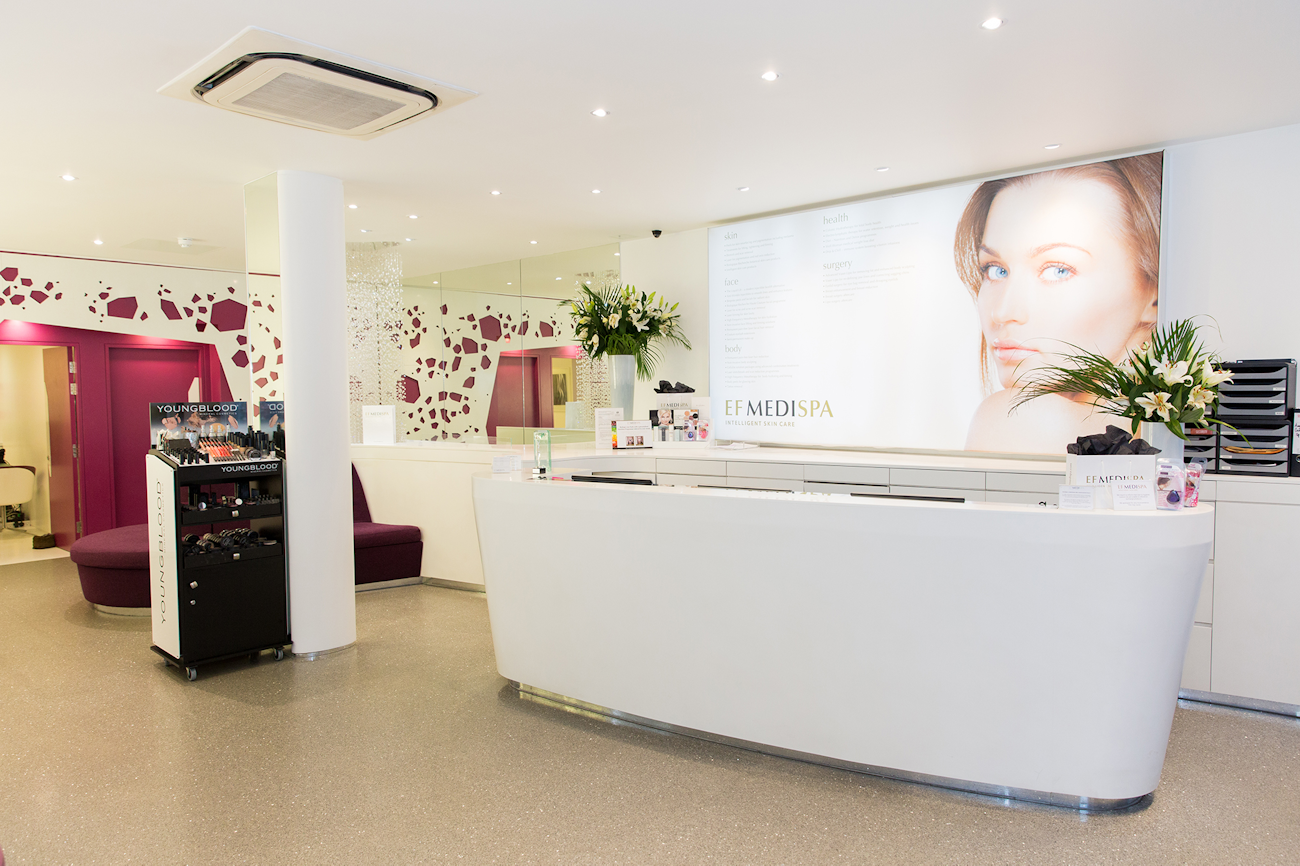
At EF MEDISPA, we are passionate about women’s health, and that includes talking openly about common concerns and issues we women face with our bodies. Having just taken on a new treatment for stress urinary incontinence, we want to talk to you about women’s health, and in particular our vaginas. There are lots of taboos around vaginas, and subjects that women don’t feel comfortable talking openly about, including calling your vagina as anything but vagina. However, today we want to discuss a couple of different (and very common) subjects around vaginas that we feel all women should not be embarrassed to talk about.
We all have vaginal discharge
Vaginal discharge is a topic many women shy away from talking about, but in actual fact discharge is just our body’s way of telling us that everything is working as it should be. It’s a very healthy substance produced by our cervix, in order to keep our vaginas moist and protect them from infections.
If discharge isn’t something you’ve spoken about with friends or family then you may wonder how you know if yours is healthy? Well, healthy discharge is generally either clear or white, and non-scented. The thickness can change during your menstrual cycle, generally becoming wetter when you’re ovulating. Again there are changes in your discharge when you’re pregnant or post-menopause. During pregnancy many women notice that they produce more discharge, and then after menopause, many women will have less discharge.
However, it is important to note that if you notice changes in your discharge, including the colour or the scent then it is recommended that you see your GP.
Treat your Stress Urinary Incontinence
 Stress Urinary Incontinence
Stress Urinary Incontinence (otherwise known as stress incontinence or SUI) is a common concern for menopausal and post-menopausal women, or those who have has vaginal births. However, although it’s a condition many women face on a daily basis, it's not being spoken about enough.
Stress urinary incontinence is involuntary urine leakage when the bladder is put under pressure, for example, when your sneeze, laugh or cough. Stress incontinence is caused by the weakening of the pelvic floor muscles, and therefore the best methods of treatment all include strengthening the pelvic floor muscles. If you would like to know more about the different techniques for strengthening your pelvic floor muscles, including how to perform kegel exercises,
click here.
However, if you've tried kegel exercises but they aren’t working for you, then our new and advanced
FemiLift treatment may be right for you. Performed by a trained Gynaecologist, the FemiLift is a non-surgical treatment that uses a CO2 laser probe which carefully heats the tissue inside your vagina, helping to stimulate the production of new collagen. In turn, this helps to build the strength and elasticity of the vaginal tissue, resulting in an improvement in incontinence issues.
To find out how you can treat your stress urinary insentience and to find out more about other health and wellbeing treatments we offer at EF MEDISPA please call us today on
020 3811 2727 or
book a complimentary consultation here. 
 At EF MEDISPA, we are passionate about women’s health, and that includes talking openly about common concerns and issues we women face with our bodies. Having just taken on a new treatment for stress urinary incontinence, we want to talk to you about women’s health, and in particular our vaginas. There are lots of taboos around vaginas, and subjects that women don’t feel comfortable talking openly about, including calling your vagina as anything but vagina. However, today we want to discuss a couple of different (and very common) subjects around vaginas that we feel all women should not be embarrassed to talk about.
At EF MEDISPA, we are passionate about women’s health, and that includes talking openly about common concerns and issues we women face with our bodies. Having just taken on a new treatment for stress urinary incontinence, we want to talk to you about women’s health, and in particular our vaginas. There are lots of taboos around vaginas, and subjects that women don’t feel comfortable talking openly about, including calling your vagina as anything but vagina. However, today we want to discuss a couple of different (and very common) subjects around vaginas that we feel all women should not be embarrassed to talk about.
 Stress Urinary Incontinence (otherwise known as stress incontinence or SUI) is a common concern for menopausal and post-menopausal women, or those who have has vaginal births. However, although it’s a condition many women face on a daily basis, it's not being spoken about enough.
Stress urinary incontinence is involuntary urine leakage when the bladder is put under pressure, for example, when your sneeze, laugh or cough. Stress incontinence is caused by the weakening of the pelvic floor muscles, and therefore the best methods of treatment all include strengthening the pelvic floor muscles. If you would like to know more about the different techniques for strengthening your pelvic floor muscles, including how to perform kegel exercises, click here.
However, if you've tried kegel exercises but they aren’t working for you, then our new and advanced FemiLift treatment may be right for you. Performed by a trained Gynaecologist, the FemiLift is a non-surgical treatment that uses a CO2 laser probe which carefully heats the tissue inside your vagina, helping to stimulate the production of new collagen. In turn, this helps to build the strength and elasticity of the vaginal tissue, resulting in an improvement in incontinence issues.
To find out how you can treat your stress urinary insentience and to find out more about other health and wellbeing treatments we offer at EF MEDISPA please call us today on 020 3811 2727 or book a complimentary consultation here.
Stress Urinary Incontinence (otherwise known as stress incontinence or SUI) is a common concern for menopausal and post-menopausal women, or those who have has vaginal births. However, although it’s a condition many women face on a daily basis, it's not being spoken about enough.
Stress urinary incontinence is involuntary urine leakage when the bladder is put under pressure, for example, when your sneeze, laugh or cough. Stress incontinence is caused by the weakening of the pelvic floor muscles, and therefore the best methods of treatment all include strengthening the pelvic floor muscles. If you would like to know more about the different techniques for strengthening your pelvic floor muscles, including how to perform kegel exercises, click here.
However, if you've tried kegel exercises but they aren’t working for you, then our new and advanced FemiLift treatment may be right for you. Performed by a trained Gynaecologist, the FemiLift is a non-surgical treatment that uses a CO2 laser probe which carefully heats the tissue inside your vagina, helping to stimulate the production of new collagen. In turn, this helps to build the strength and elasticity of the vaginal tissue, resulting in an improvement in incontinence issues.
To find out how you can treat your stress urinary insentience and to find out more about other health and wellbeing treatments we offer at EF MEDISPA please call us today on 020 3811 2727 or book a complimentary consultation here. 

